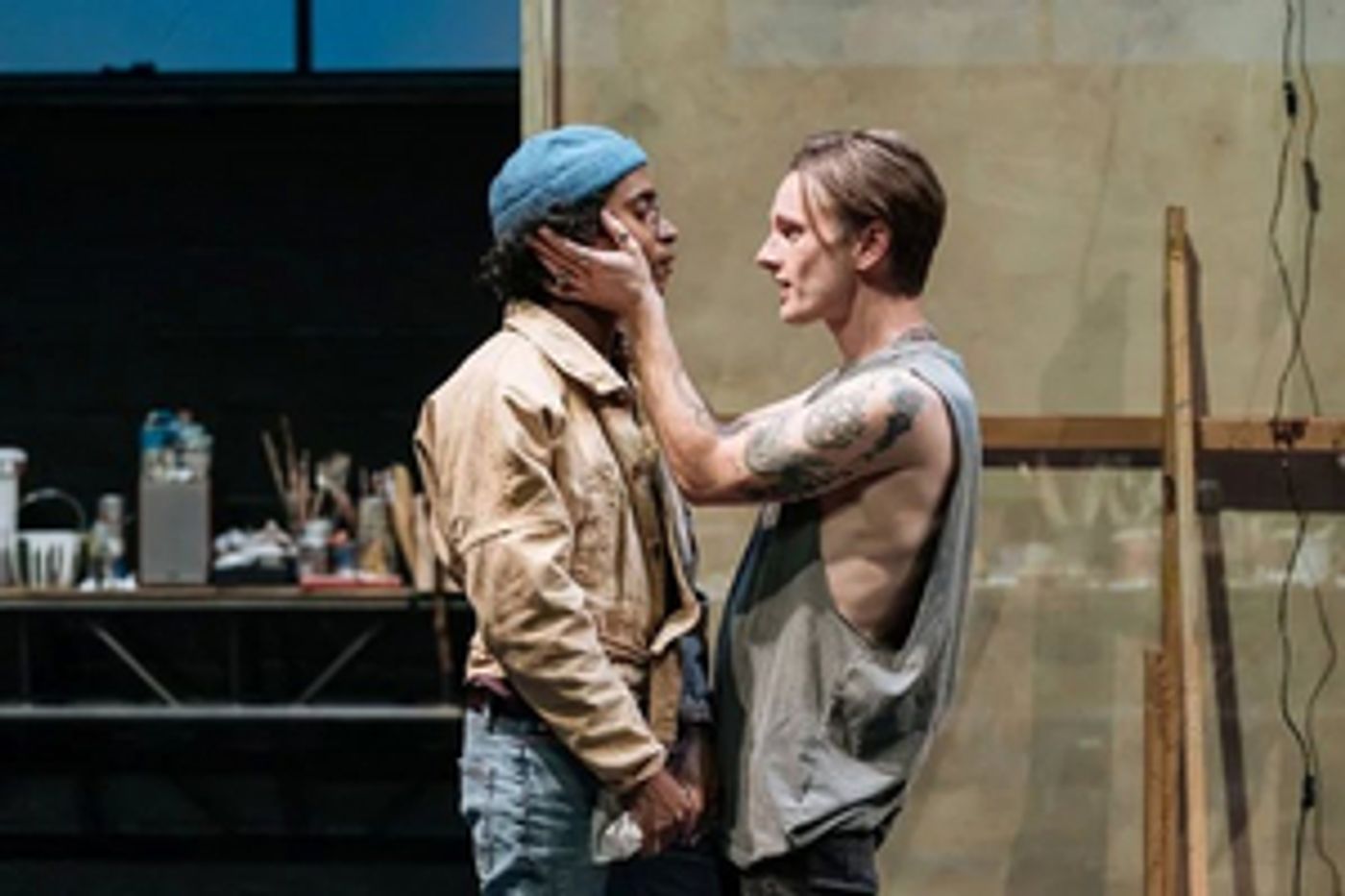Review: BOTTICELLI IN THE FIRE, Hampstead Theatre

![]()
The Renaissance is in full swing with Lorenzo de' Medici's (Adetomiwa Edun) modern policies and Sandro Botticelli (Dickie Beau) is at the peak of his success. Parties are held in his honour and Florence is thriving as the home of some of the most sought-after painters of their age.
Botticelli seems to have it all: aristocratic patronage, good looks, and an unbelievably talented and attractive apprentice called Leonardo (Hiran Abeysekera). As the plague starts to rip the city apart and the body count rises, Dominican friar Girolamo Savonarola (Howard Ward) fuels the fire of discord between the population and the liberal elite. Botticelli finds himself taking part in a dangerous game of survival.
Botticelli in the Fire is cool, but that's not all it is. Multi-disciplinary artist and playwright Jordan Tannahill tears down time barriers, eliminating the distance between the 15th century and the 21st with glorious anachronistic liberties, drawing an urgent comparison between then and now. Directed by Blanche McIntyre, the finished product is engaging, touching, immediate, and - naturally - beautiful. The dichotomy between contemporary style and period setting works marvels for Tannahill's endgame, and allows him to play with language and reference pop culture freely.
Beau is the troubled and deliciously oh-so-gay protagonist, torn between his love for Leonardo da Vinci, his talent, and his own shade of cowardice. Shameless and driven, he is professedly fearless when he starts an illicit affair with Clarice (Sirine Saba), Lorenzo's bored and brazen wife. His tendency to use people as means to an end nearly breaks him before he reconsiders his role among the societal issues of the moment. McIntyre pushes the actor to the brink, leading him to deliver a complex and extraordinarily precise performance.
His relationship with Abeysekera's Leonardo is tender and almost adoring; chemistry sparks as their bond develops, and erotic energy begins to exude from their exchanges unabashedly through looks and touch. Where Abeysekera is soft and fine, Stefan Adegbola is flamboyant and camp as Poggio di Chiusi, the final member of the main trio. The friends bask in their own debauchery and enjoy life's pleasures at their fullest, until the reality of a quickly changing political climate gives them pause.
Savonarola's condemnation of sodomy and the destruction of secular art trample their spirits and, as young men are tortured and killed for their sexual identity on the public square, Botticelli and co. are forced to come to terms with the rise of a new and unforgiving ruling system. Edun handles his stately role with ease, always concealing a brutal vein that threatens to explode at any given time. When it does, McIntyre follows Tannahill's lead and paints riveting visuals by placing violence in front of the overwhelming beauty of Botticelli's "The Birth of Venus".
For the duration of the show, she constructs and demolishes a series of vivid images that recall Renaissance classicism. Her imagery reaches its apotheosis when Botticelli's mother Maria (Louise Gold) sponge-bathes her son after a bender in a position that evokes Michelangelo's "Pietà". While the thematic lines of the show deal with censorship and sexual repression, the production is a glorification of the human figure. Nudity is normalised and those elements whose shock value could have been abused are, instead, shifted and portrayed under a natural light.
Botticelli in the Fire juggles many layers that flourish as one. Tannahill somehow manages to write a relentless play that's as political as it is romantic. Botticelli becomes a tragic hero with faded rockstar looks, who has to go to war with himself as well as with a line-up of terrifyingly modern outside forces that not only threaten his freedom but that are bound to change history for the worse. Extremely personal writing coexists within the jarring political background, with the latter serving as a wake-up call for the main character and his audiences alike.
McIntyre also succeeds in matching the visual side of the production to its contents, building a team that delivers on all levels. James Cotterill's set owns an industrial vibe that, working with a set of pulleys, moves the action from the court to the artist's studio and everything in between, while Johanna Town's lighting design swings from richly surreal to naturalistic. Olly Fox and Christopher Shutt curate the acoustics, with the former's original pieces standing side by side with Shutt's all-enveloping but unintrusive sound design that makes itself known particularly in its absence when silence takes over loudly.
Botticelli's experimental nature isn't, per se, anything new on the scene, but Tannahill triumphs, eradicating all the genre's cheesiness and offering an elaborate and thought-provoking project. However, as per setting specificity etc., one wishes there was at least one Italian representative either on stage or behind the scenes...
Botticelli in the Fire runs at Hampstead Theatre until 23 November.
Image credit: Manuel Harlan
Reader Reviews
Videos

